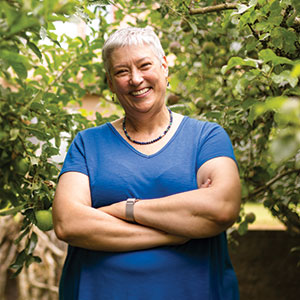-
In the Moment- Spring 2019
Readers share snapshots of their lives today.
-
In the Moment- Winter 2018/2019
Readers share snapshots of their lives today.
-
Survivor Profile
The Bridge BuilderBreast cancer survivor Bob Riter forges connections among people affected by all types of cancer.
by Marci A. Landsmann
-
Q&A
Dissecting Mental IllnessNeuroscientist Barbara Lipska describes her experiences with symptoms of psychiatric illness caused by treatment for metastases in her brain.
by Marci A. Landsmann
-
In the Moment- Fall 2018
Tanya Waring-Hearn, Amy Rowley, Elsie Young.
-
Survivor Profile
The Power of PatientsJanet Freeman-Daily helps put patients at the center of lung cancer research.
by Robin Meadows
-
Raising Their Voices
People with metastatic breast cancer are demanding to be seen, counted and included in breast cancer research.
by Sue Rochman
-
Learning to Share
At first, I wanted to hide my cancer diagnosis. My son showed me what a mistake that was.
by Lenn Robbins
-
Being Candid About Cancer
As a father with an aggressive brain cancer, I've opted against elaborate metaphors and in favor of candid speech when talking about cancer with my children.
by Adam Hayden
-
Survivor Profile
A Long Road BackMultiple myeloma survivor Gary Lambert deploys inventiveness and fortitude to deal with cancer.
by Lindsey Konkel
Cancer Talk
Celebrity Cancer Stories Can Lack Important Information
News coverage about public figures facing cancer frequently leaves out key details about the diagnosis and fails to provide background information on cancer.
by Laura Gesualdi Gilmore
AACR Annual Meeting 2025Immunotherapies, cancer vaccines and more from Cancer Today’s coverage of the AACR Annual Meeting 2025.
Redefining Cancer SurvivorshipAs people with advanced disease live longer, they face physical and mental health side effects. Patient advocates say research and care must focus on their unique needs.
by Thomas Celona
Family of Henrietta Lacks Works for ‘Health Intelligence’Alfred Lacks Carter Jr. and other family members honor the legacy of Henrietta Lacks by helping others better understand their health care.
by Kevin McLaughlin















